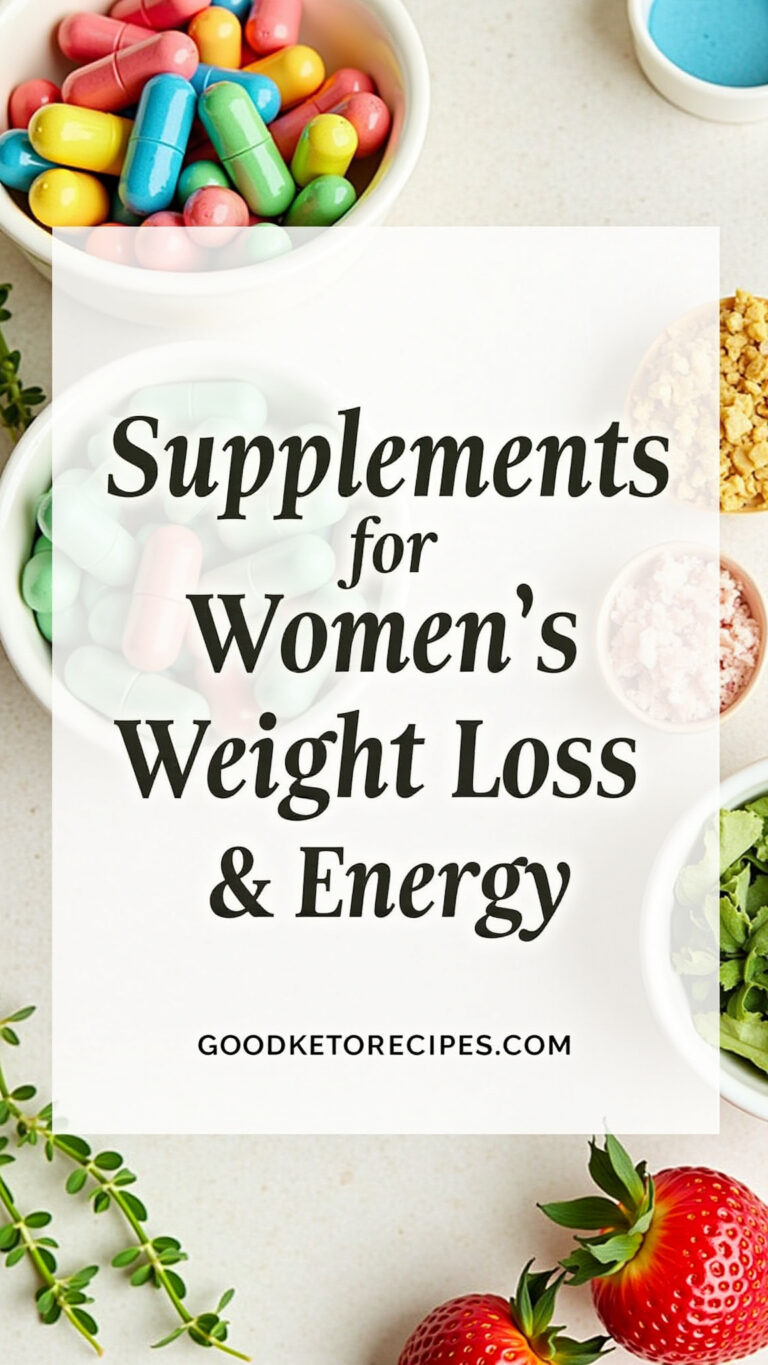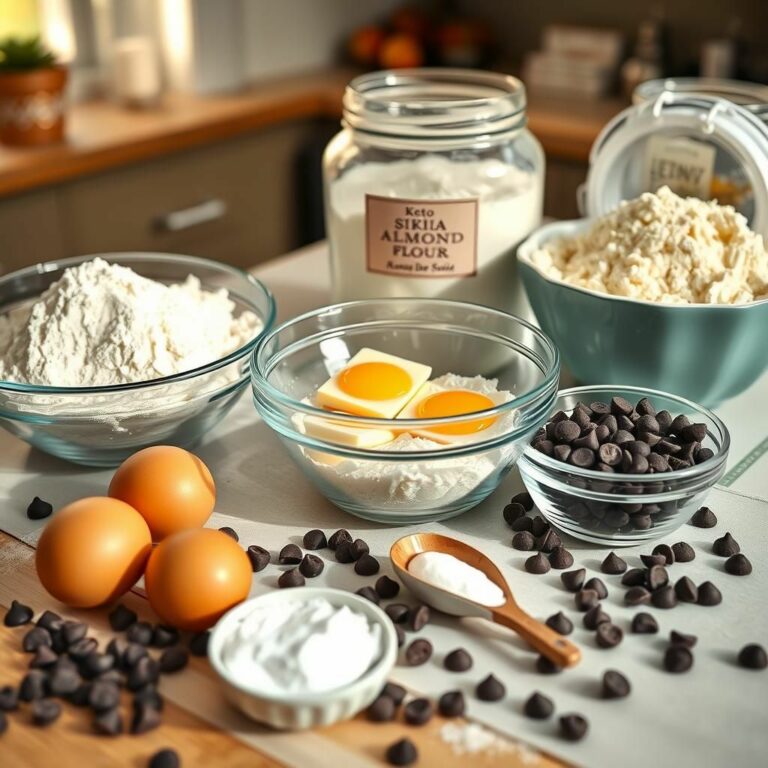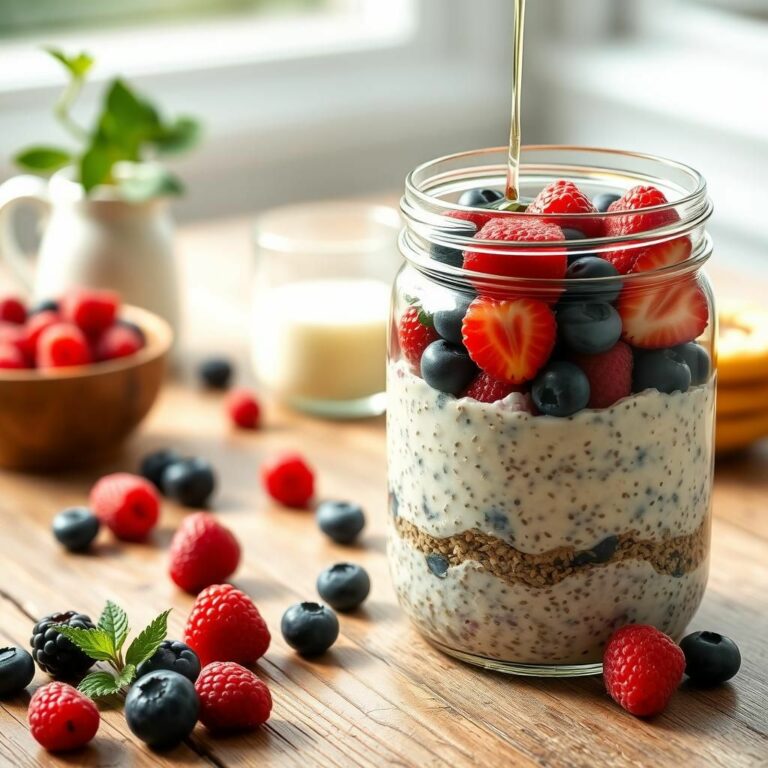Collagen Powder for Women: A Comprehensive Guide
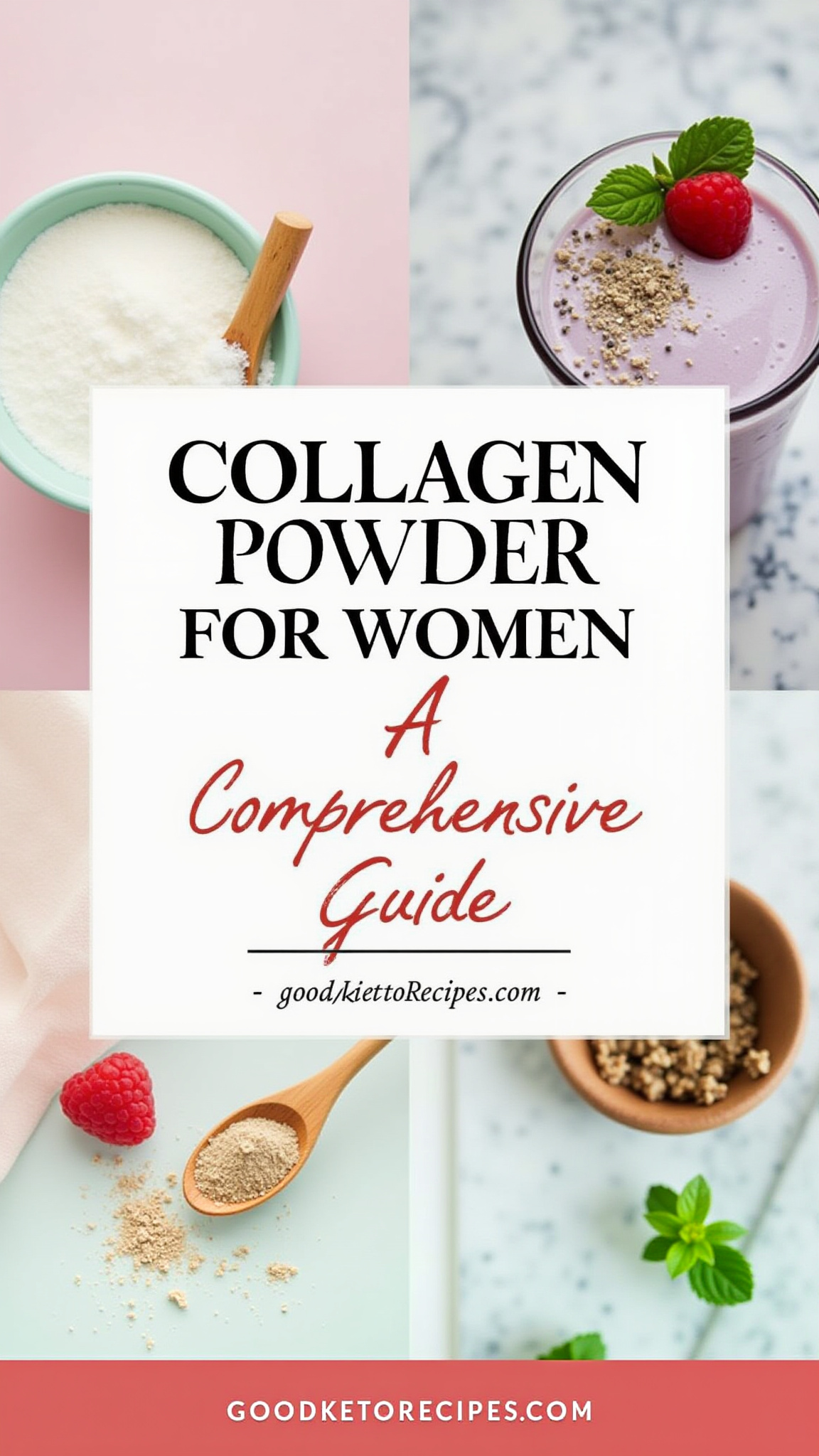
Collagen powder has surged in popularity, becoming a staple in many women’s wellness routines. This comprehensive guide explores the best collagen powders for women, delving into their benefits, types, usage, and what to look for when making a purchase. We’ll also cover the science behind collagen and address common concerns, empowering you to make informed decisions about incorporating collagen into your daily life.
What is Collagen?
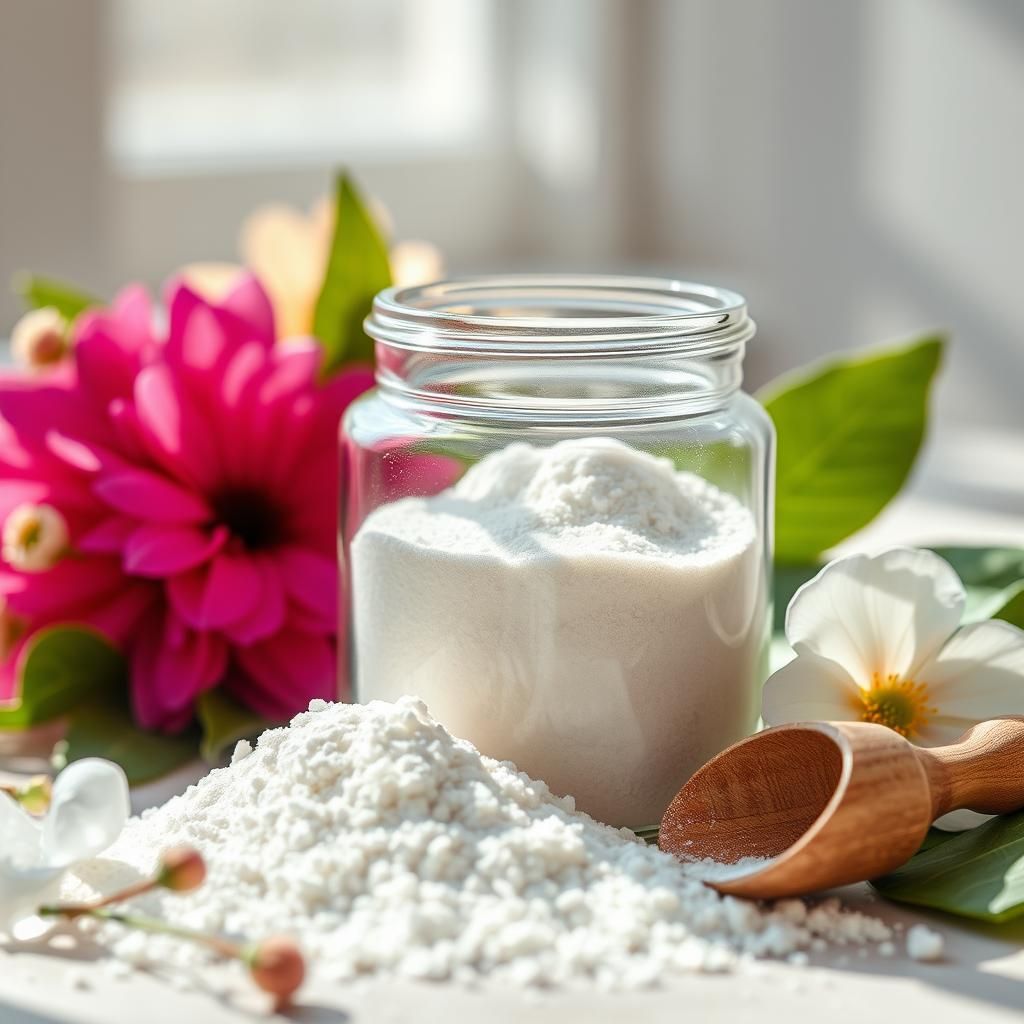
Collagen is the most abundant protein in the human body, acting as the structural building block for skin, hair, nails, bones, tendons, and ligaments. It provides strength, elasticity, and support throughout the body. Think of it as the “glue” that holds everything together.
As we age, collagen production naturally declines, leading to visible signs of aging such as wrinkles, joint pain, and decreased bone density. This decline typically begins in our mid-20s and accelerates after menopause for women. Supplementing with collagen can help replenish these dwindling levels.
Benefits of Collagen for Women

Collagen offers a range of potential benefits for women, making it a popular supplement for overall health and well-being. Here’s a breakdown of the most prominent advantages:
- Improved Skin Elasticity and Hydration: Studies show that collagen supplementation can improve skin elasticity, reduce wrinkles, and increase skin hydration. This is due to collagen’s ability to stimulate the production of other proteins that help structure the skin, such as elastin and fibrillin.
- Stronger Hair and Nails: Collagen can strengthen hair follicles, reducing breakage and promoting healthy hair growth. It can also improve nail strength, preventing brittleness and promoting faster growth.
- Joint Pain Relief: Collagen supports cartilage, the rubbery tissue that protects joints. Supplementing with collagen can help reduce joint pain and stiffness, especially in individuals with osteoarthritis. Research indicates that collagen peptides can accumulate in cartilage and stimulate your tissues to make collagen. This may lead to lower inflammation, better support of your joints and reduced pain.
- Increased Bone Density: Collagen is a major component of bone tissue. Supplementing with collagen can help increase bone density, reducing the risk of osteoporosis, particularly important for post-menopausal women.
- Gut Health Support: Some studies suggest that collagen can help improve gut health by supporting the integrity of the intestinal lining. This can be beneficial for individuals with digestive issues such as leaky gut syndrome.
- Muscle Mass and Strength: While collagen isn’t a complete protein for building significant muscle mass, it can contribute to muscle repair and recovery, especially when combined with resistance training.
Types of Collagen Powder
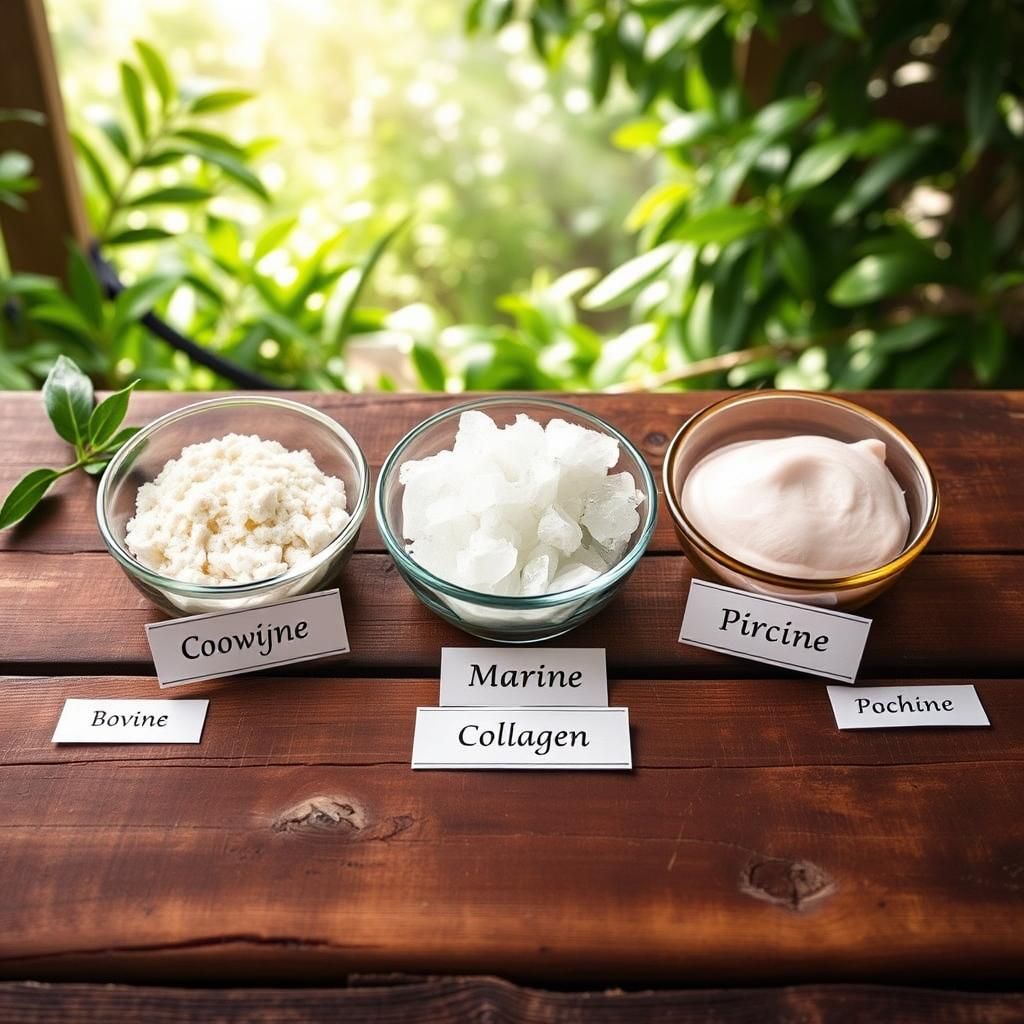
Not all collagen powders are created equal. Different types of collagen provide different benefits. Here’s a breakdown of the main types you’ll find in supplements:
- Type I Collagen: The most abundant type in the body, primarily found in skin, hair, nails, bones, and tendons. It’s crucial for skin elasticity and hydration.
- Type II Collagen: Primarily found in cartilage, making it beneficial for joint health.
- Type III Collagen: Often found alongside Type I, supporting skin elasticity and the health of organs and blood vessels.
- Type IV Collagen: Supports the filtration within the kidneys and is found in the basement membranes of cells.
- Type V Collagen: Found in hair, placental tissue, and other parts of the body.
Most collagen supplements contain a blend of Type I and Type III collagen. Type II collagen is often sold separately and marketed specifically for joint health.
What to Look For in a Collagen Powder
Choosing the right collagen powder can be overwhelming with so many options available. Here are key factors to consider:
- Source: Collagen is derived from animal sources, primarily bovine (beef), marine (fish), and porcine (pig). Choose a source that aligns with your dietary preferences and ethical considerations. Marine collagen is often considered more sustainable. Bovine collagen is typically more affordable and widely available.
- Type of Collagen: Determine which type of collagen best suits your needs. For skin health, look for Type I and Type III. For joint health, consider Type II. Many supplements offer a blend of multiple types.
- Hydrolyzed Collagen (Collagen Peptides): Hydrolyzed collagen, also known as collagen peptides, is broken down into smaller, more easily digestible pieces. This allows for better absorption into the bloodstream. Look for “hydrolyzed” or “collagen peptides” on the label.
- Third-Party Testing: Choose products that have been third-party tested for purity, potency, and safety. Look for certifications from organizations like NSF International, USP, or Informed-Sport. This ensures that the product contains what it claims and is free from contaminants.
- Additives and Fillers: Avoid collagen powders with unnecessary additives, fillers, artificial sweeteners, or artificial colors. Opt for products with minimal ingredients.
- Sugar Content: Many collagen powders are flavored, so check the sugar content to avoid unnecessary added sugars.
- Reviews and Reputation: Read online reviews and research the brand’s reputation. Look for companies with positive customer feedback and a commitment to quality.
- Price: Collagen powder prices can vary significantly. Consider your budget and compare prices across different brands and sources. Remember that higher price doesn’t always equal higher quality.
Best Collagen Powders for Women (Based on Research & Reviews)
Based on research, customer reviews, and expert recommendations, here are some of the top collagen powders for women, categorized by specific needs:
For Overall Skin Health:
- Vital Proteins Collagen Peptides: This is a highly popular and widely available option that contains both Type I and Type III collagen derived from bovine sources. It’s unflavored and mixes easily into liquids. It is NSF certified.
- Neocell Super Collagen + C: This supplement combines Type I and Type III collagen with vitamin C, which is essential for collagen synthesis. Many users report visible improvements in skin elasticity and hydration.
For Joint Pain Relief:
- Sports Research Collagen Peptides: This collagen peptide powder offers Type I and Type III collagen from bovine sources. It is also third party tested and keto/paleo friendly.
- NOW Foods UC-II Collagen: This supplement specifically contains Type II collagen derived from chicken sternum. It’s designed to support joint health and reduce inflammation.
For Hair and Nail Growth:
- HUM Nutrition Collagen Pop: These effervescent tablets contain collagen peptides along with vitamin C and hyaluronic acid, providing a convenient and tasty way to support hair, skin, and nail health.
- Ancient Nutrition Multi Collagen Protein: This supplement contains a blend of five different types of collagen sourced from bovine, chicken, fish, and eggshell membrane. It provides a comprehensive range of benefits for skin, hair, nails, joints, and gut health.
For Budget-Friendly Options:
- Great Lakes Gelatin Collagen Hydrolysate: This is an affordable and widely available option that contains Type I and Type III collagen from bovine sources. It’s unflavored and mixes easily into liquids.
Important Considerations:
- Individual Needs: The best collagen powder for you will depend on your specific needs and goals. Consider what benefits you’re seeking and choose a product accordingly.
- Allergies: Be mindful of potential allergens. If you have allergies to fish, shellfish, or eggs, choose a collagen powder derived from bovine or porcine sources.
- Consult with a Healthcare Professional: If you have any underlying health conditions or are taking medications, consult with a healthcare professional before taking collagen supplements.
How to Use Collagen Powder
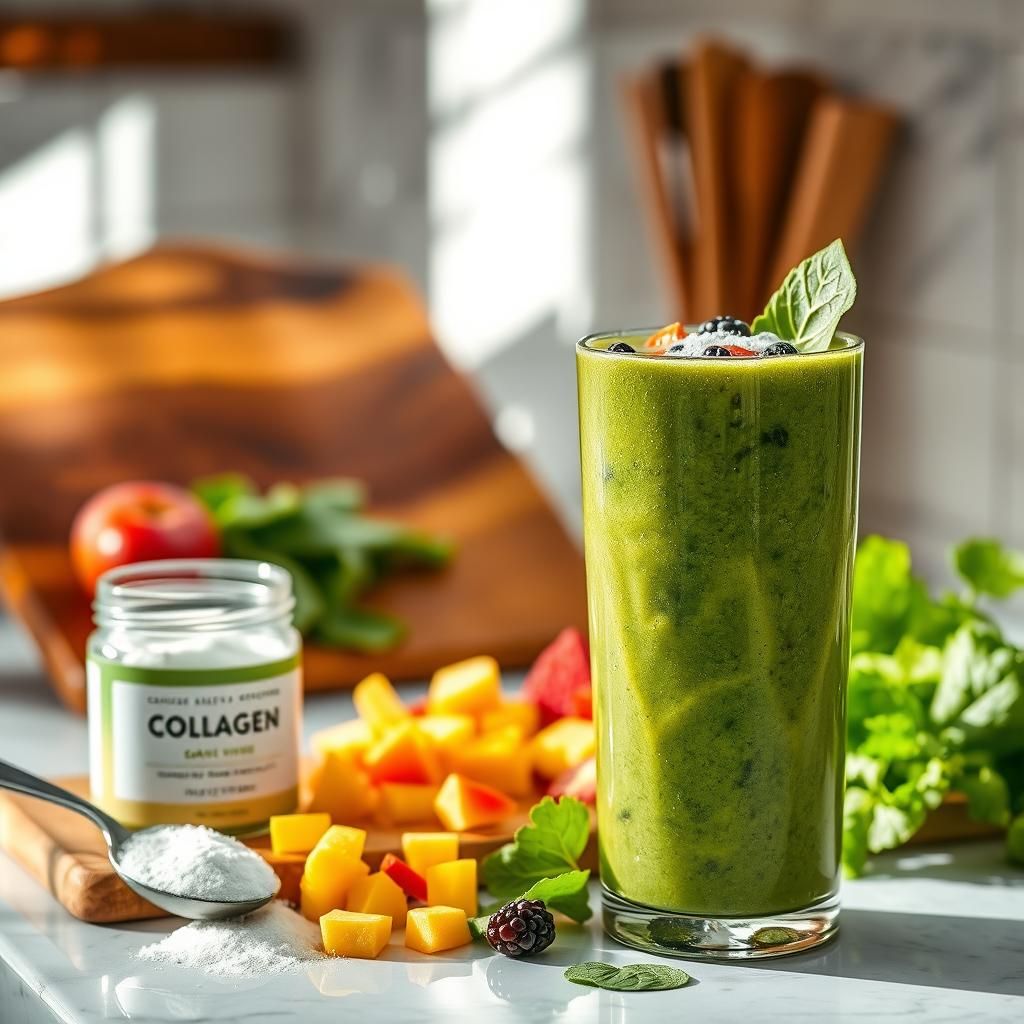
Collagen powder is incredibly versatile and can be easily incorporated into your daily routine. Here are some common ways to use it:
- Mix into Beverages: The most common way to use collagen powder is to mix it into beverages such as coffee, tea, smoothies, or juice. Unflavored collagen powder dissolves easily and doesn’t alter the taste of your drink.
- Add to Food: Collagen powder can also be added to foods such as oatmeal, yogurt, soups, or sauces.
- Baking and Cooking: Collagen powder can be used in baking and cooking to add protein and improve texture. It can be added to recipes for bread, muffins, pancakes, or even meatloaf.
- Capsules: If you don’t like the taste or texture of collagen powder, you can take it in capsule form.
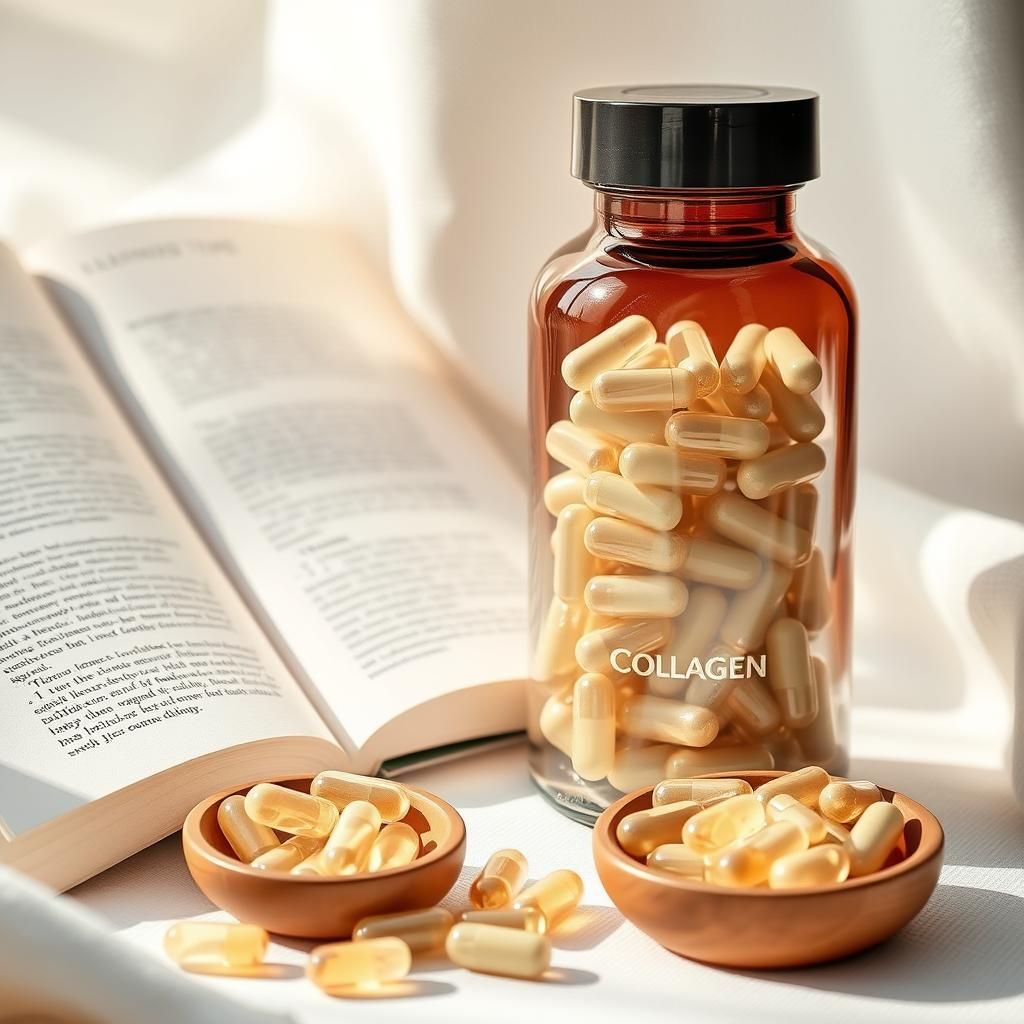
Dosage:
The recommended dosage of collagen powder varies depending on the product and individual needs. However, a general guideline is to take 10-20 grams of collagen powder per day. Start with a lower dose and gradually increase it as needed.
Timing:
Collagen can be taken at any time of day. Some people prefer to take it in the morning on an empty stomach for optimal absorption, while others prefer to take it before bed to support overnight repair and recovery.
Tips for Optimal Results:
- Consistency is Key: For best results, take collagen powder consistently every day. It may take several weeks or months to see noticeable improvements.
- Combine with Vitamin C: Vitamin C is essential for collagen synthesis. Consider taking collagen powder with a vitamin C supplement or incorporating vitamin C-rich foods into your diet.
- Stay Hydrated: Hydration is crucial for skin health and collagen production. Drink plenty of water throughout the day.
- Healthy Lifestyle: Collagen supplementation is most effective when combined with a healthy lifestyle that includes a balanced diet, regular exercise, and adequate sleep.
Potential Side Effects and Precautions
Collagen powder is generally considered safe for most people. However, some individuals may experience mild side effects such as:
- Digestive Issues: Some people may experience digestive issues such as bloating, gas, or diarrhea when taking collagen powder. This is often due to the protein content of the supplement. Starting with a lower dose and gradually increasing it can help minimize these side effects.
- Allergic Reactions: Allergic reactions to collagen are rare but possible. If you have allergies to fish, shellfish, or eggs, choose a collagen powder derived from bovine or porcine sources.
- Hypercalcemia: Some collagen supplements contain calcium. Taking high doses of calcium can lead to hypercalcemia, a condition characterized by elevated levels of calcium in the blood.
- Drug Interactions: Collagen may interact with certain medications. If you are taking medications, consult with a healthcare professional before taking collagen supplements.
Precautions:
- Pregnancy and Breastfeeding: There is limited research on the safety of collagen supplements during pregnancy and breastfeeding. Consult with a healthcare professional before taking collagen supplements if you are pregnant or breastfeeding.
- Kidney Disease: Individuals with kidney disease should exercise caution when taking collagen supplements, as high protein intake can put a strain on the kidneys.
The Science Behind Collagen

Collagen’s benefits are backed by a growing body of scientific research. Studies have shown that collagen supplementation can:
- Increase Skin Elasticity: A 2014 study published in the Journal of Cosmetic Dermatology found that women who took a collagen supplement for 8 weeks experienced a significant improvement in skin elasticity compared to a placebo group.
- Reduce Wrinkles: A 2019 meta-analysis of 11 studies published in the Journal of Drugs in Dermatology concluded that oral collagen supplements can reduce skin wrinkles and improve skin hydration.
- Alleviate Joint Pain: A 2006 study published in the journal Osteoarthritis and Cartilage found that collagen supplementation reduced joint pain and improved physical function in individuals with osteoarthritis of the knee.
- Increase Bone Density: A 2018 study published in the journal Nutrients found that postmenopausal women who took a collagen supplement for 12 months experienced an increase in bone mineral density compared to a placebo group.
These studies, along with numerous others, provide evidence for the potential benefits of collagen supplementation. However, it’s important to note that research is ongoing, and more studies are needed to fully understand the long-term effects of collagen supplementation.
Power Up Your Health!
Collagen powder can be a valuable addition to a woman’s wellness routine, offering a range of potential benefits for skin, hair, nails, joints, bones, and gut health. By understanding the different types of collagen, what to look for in a supplement, and how to use it effectively, you can make informed decisions and choose the best collagen powder for your individual needs. Remember to prioritize quality, consistency, and a healthy lifestyle for optimal results. As always, consult with a healthcare professional if you have any concerns or underlying health conditions.
Affiliate Link Disclosure: Some of the links in this post are affiliate links. This means that if you click on the link and make a purchase, I may receive a small commission at no extra cost to you. I only recommend products or services that I personally use and believe will be valuable to my readers.


